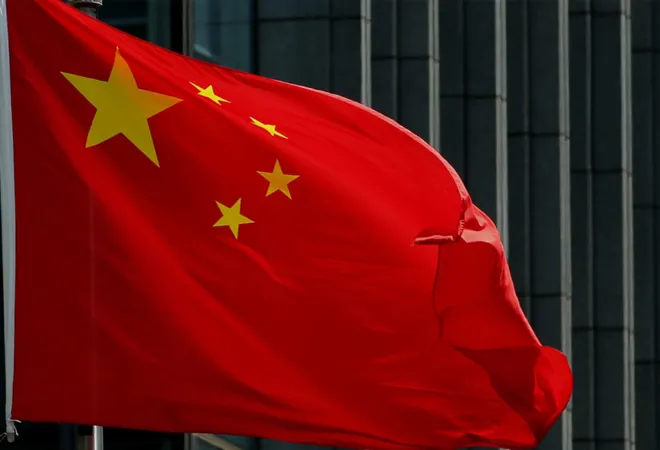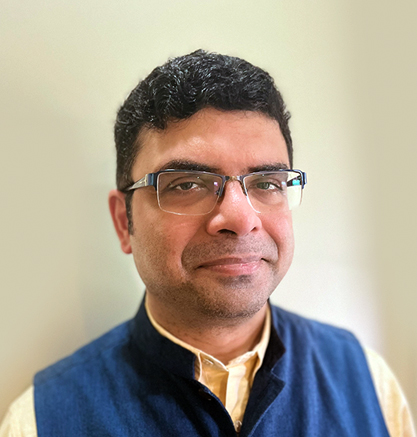-
CENTRES
Progammes & Centres
Location
Discussions are taking place amongst China’s elites on the restructuring of CPC and state institutions to make them respond to the demands of the Post-COVID era

‘Confronting challenges’ and ‘continuity with change’ are leitmotivs of China’s “two sessions”—the yearly parliamentary sittings of the National People’s Congress and the Chinese People's Political Consultative Conference. The proceedings of this important political event and the speeches of its elites are being perused to decode China’s policy trajectory and more importantly its once-in-a-decade leadership transition.
Moving away from Xi-economics
The challenges that stare at China are the result of its policy missteps. The predominance of Xi-economics meant that China moved away from its traditional focus on economic development. Take COVID-19 for example, it has one of the first nations to bounce back from the coronavirus jolt initially, but a political calculation of strictly adhering to Xi Jinping’s signature Zero-COVID policy in 2022 took a toll on its growth. The strict quarantine curbs and isolation mandates under the Zero-COVID policy shuttered businesses, which affected household income and employment opportunities. In 2022, China’s economy grew at its slowest pace in decades, and even the current parliamentary conclave has homed in on a modest growth target of around 5 percent for this year in the anticipation of weak global demand. Traditionally, China’s pursuit of rapid economic growth lifted millions out of poverty but also led to an expansion of inequality. Xi turned the focus on ‘common prosperity’, elevating it to a political campaign, which resulted in the crackdown against China’s Big Tech firms that led to affecting investor sentiment. Another factor that led to Xi launching a broadside of the technology firms was the feeling that having amassed enough financial muscle, China’s private sector would want a greater say in decision-making, which remains the preserve of the CPC. In late 2020, Alibaba founder Jack Ma disappeared from public view, after criticising China’s regulators.
Xi turned the focus on ‘common prosperity’, elevating it to a political campaign, which resulted in the crackdown against China’s Big Tech firms that led to affecting investor sentiment.
The epidemic-prevention strategy also disturbed China’s social compact, in which its citizens forgo their rights in return for economic benefits. This has led to a simmering dissent against the CPC as seen from the non-payment of home mortgages and the student agitation across cities in December 2022, pressing for the repeal of the Zero-COVID policy. In each of these instances, the CPC was forced to make amends, creating a perception that agitations by the seemingly meek can make an impact against the mighty Party. As economic uncertainty grows the CPC’s assessment is that educational institutions are the new battleground and that if economic hardships grow for its Gen Next, it may see more protests against the state.
This is one factor that may have prompted a change in the CPC’s disposition towards the private sector. Early this year, Guo Shuqing, the Party Secretary of the China’s central bank, the ‘rectification campaign’ against China’s Big Tech has been wounded up and that support will be extended to aid these companies to play a bigger role in job creation. This has been followed by Xi’s charm offensive in his two sessions address, in which he said entrepreneurs were like family members and that the private sector is an important force for our Party to realise the goal of a powerful China. Thus, in a major shift, the CPC’s worries over dipping economic growth and unemployment are behind Xi’s latest outreach towards the private sector.
Continuity and change
Currently, there is a debate underway among China’s elites on the restructuring of the Party and state institutions to make them respond to the demands of new situations. First, on the issue of debt, there is now greater awareness of the need to plug China’s credit splurge. Renowned economist Cao Yuanzheng has red-flagged debt, warning that nations like Pakistan, Nepal, Türkiye, and Cambodia among others were in the red. Cao argued that China being the largest creditor of many of these economies posed the biggest external risk to its economy. Early last year, depositors in China hit the streets after some rural banks denied them access to their savings. In his speech at the Party Congress in October 2022, Xi warned about the potential of “grey rhino events” that could undermine financial stability. China plans to set up a supra-regulatory authority to oversee the country’s banking and insurance assets. Plans are afoot to separate the Ministry of Public Security (in-charge of law-enforcement) and Ministry of State Security (tasked with intelligence gathering) from the State Council, and put under a new super-body called the Internal Affairs Committee that will be under the Party’s Central Committee.
Guo Shuqing, the Party Secretary of the China’s central bank, the ‘rectification campaign’ against China’s Big Tech has been wounded up and that support will be extended to aid these companies to play a bigger role in job creation.
The one place where this reform of Party and state institutions will make the most impact is in the Party-state relations. In the 1980s, China’s paramount leader Deng Xiaoping called for “separation of the State and the Party”, but Xi has pushed in the other direction, working towards greater synergy between the two pillars of governance. Despite the seeming opacity of China’s political system, differences over policy between Xi (representing the Party) and recently retired Premier Li Keqiang (representing the government) came to fore, particularly in the COVID-19 era. In the early days, when China was grappling with coronavirus in 2020, which had necessitated lockdowns, Li Keqiang promoted the concept of a ‘street-stall economy’ in which vendors used handcarts to hawk merchandise in public places, prompting oblique criticism from the Chinese state media. Again while Xi was announcing that he had eradicated absolute poverty in China, Li Keqiang punctured the claim by highlighting the fact that migrants had difficulty meeting the high living costs in cities. Now, the incumbent Premier Li Qiang’s presser makes it clear that decision-making will be the sole preserve of the Party, while the State Council (government) will be tasked with implementation.
New elite
Li Qiang’s deputies are Vice-Premiers He Lifeng, Zhang Guoqing, Liu Guozhong, and Ding Xuexiang, who serves as the Director of the General Office of the Communist Party’s Central Committee and a Politburo Standing Committee member. China’s financial leadership remains the same with Liu Kun and Yi Gang keeping their positions as the finance minister and central banker. Merely two of the State Council’s 26 ministries and commissions saw changes with Zheng Shanjie helming the National Development and Reform Commission and Li Shangfu taking over as defence minister. All these developments point to a trend of greater centralisation, with Xi (in his third term) at the core of policymaking, while chosen technocrats work out the nitty-gritty.
When China was grappling with coronavirus in 2020, which had necessitated lockdowns, Li Keqiang promoted the concept of a ‘street-stall economy’ in which vendors used handcarts to hawk merchandise in public places, prompting oblique criticism from the Chinese state media.
Conclusion
First, with China’s governance and politics being top-down, the lack of a succession plan in a large nation like China leaves the scope of political tussles in a post-Xi era. China’s growth direction will be closely watched by the world. China’s success so far has been a result of policy predictability, which is on shaky ground in the Xi era. Days ahead of the two sessions, billionaire tech banker Bao Fan went missing while cooperating in an inquiry. Xi’s charm offensive towards entrepreneurs will remain empty words, if not backed by concrete action.
The views expressed above belong to the author(s). ORF research and analyses now available on Telegram! Click here to access our curated content — blogs, longforms and interviews.

Kalpit A Mankikar is a Fellow with Strategic Studies programme and is based out of ORFs Delhi centre. His research focusses on China specifically looking ...
Read More +